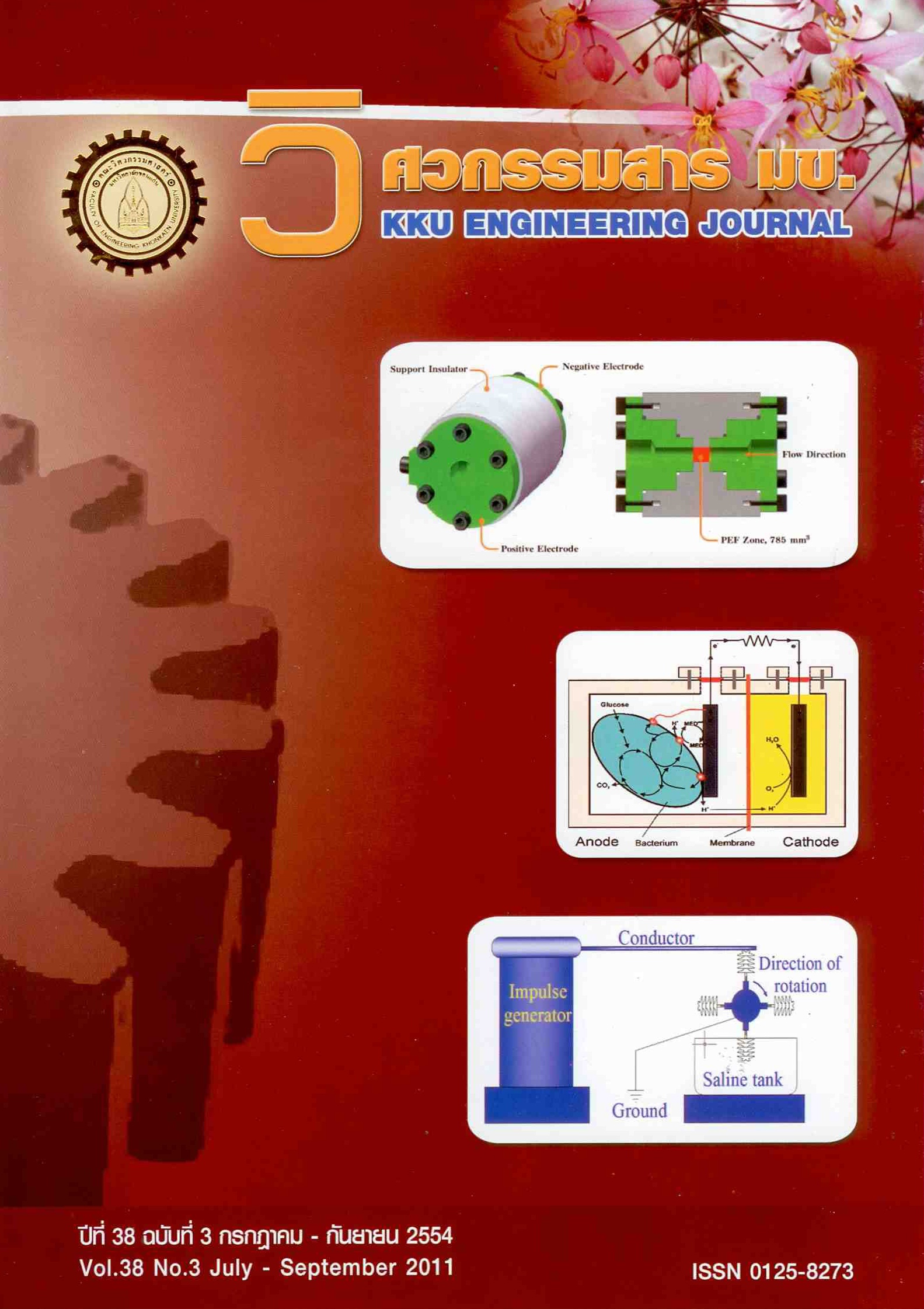Modeling of Three-phase Controlled Rectifier with a Resistive Load using a DQ Method
Main Article Content
Abstract
Power converter models are normally time-varying due to the switching actions of power electronic
devices. This paper presents the mathematical model of the power electronic based system derived from the
dq method. The dq method can eliminate the switching action to achieve the time-invariant model. This model
can be easily used with the conventional method for the system analysis and design. The considered system
in the paper is a three-phase power system and a controlled rectifier feeding a resistive load. The intensive
time-domain simulation is used to validate the purposed model. The simulation results show that a good
agreement between the dq model and the benchmark model is achieved.
devices. This paper presents the mathematical model of the power electronic based system derived from the
dq method. The dq method can eliminate the switching action to achieve the time-invariant model. This model
can be easily used with the conventional method for the system analysis and design. The considered system
in the paper is a three-phase power system and a controlled rectifier feeding a resistive load. The intensive
time-domain simulation is used to validate the purposed model. The simulation results show that a good
agreement between the dq model and the benchmark model is achieved.
Article Details
How to Cite
Chaicharoenudomrung, kosol, Areerak, kongpan, & Areerak, konspol. (2013). Modeling of Three-phase Controlled Rectifier with a Resistive Load using a DQ Method. Engineering and Applied Science Research, 38(3), 325–334. retrieved from https://ph01.tci-thaijo.org/index.php/easr/article/view/7726
Issue
Section
REVIEW ARTICLES
This work is licensed under a Creative Commons Attribution-NonCommercial-NoDerivatives 4.0 International License.



